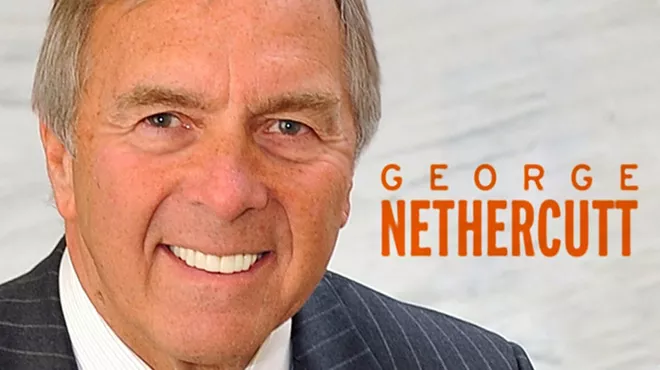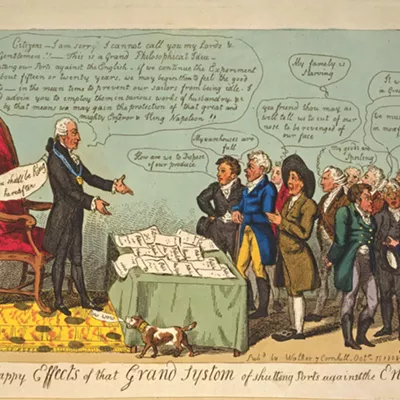There's talk these days about civility in politics, especially after the arrest of the Florida man charged with sending explosive devices to many prominent Democratic politicians. Politics is merely the opposition of one major political party's ideas against the other major political party's ideas, though expressions have become more confrontational.
Politics has always been a rough business. And it certainly is a business, with many candidates raising and spending millions in their election efforts. The Constitution's First Amendment allows free speech, though. In colonial times, speech was nasty, even without the facelessness of the internet.
In the 1790s, James Callender, a political pamphleteer and journalist, verbally attacked President John Adams at the behest of Thomas Jefferson. Later, Callender turned on Jefferson, alleging publicly that Jefferson fathered biracial children. Callender also published a series of pamphlets alleging publicly that Alexander Hamilton had an affair with Maria Reynolds. The Boston Gazette newspaper published especially vitriolic comments about the King of England, suggesting that he go hang himself, declaring, "We'll find you the rope."
Many of today's media outlets blame President Trump for inciting the Florida man to take action against the targeted liberal politicians, but that misses the mark. Wall Street Journal columnist Peggy Noonan, no Trump supporter, targets candidates, caught up in today's polarization, for perpetuating the critical rhetoric by failing to say anything nice about the opposition party.
Surely Democrats and Republicans differ on governing priorities, but each candidate loves and wants what's best for America, regardless of party affiliation. Noonan argues that politicians should lower their overt criticism and periodically praise their opponents, not just highlight their differences.
Since politics is a battle for ideas, candidates should not be shy about pointing out differences about what's the best direction for America. And while it's OK to point out governing differences with political opponents, assigning false bad motives or gratuitously, personally attacking an opponent should be discouraged.
Though negative ads have proved to be effective, the public is better served if candidates act civilly toward one another. Holding one's head high following an election rather than being publicly criticized for negative ads during a campaign is important, especially in the face of a losing campaign. Perhaps today's candidates care less about public perceptions following an election, believing that public criticisms have a short life. The old adage that one usually doesn't get a second chance to make a first impression is true. And one's reputation lasts.
That's why President Trump should be concerned about the midterm elections — his style and reputation were on the ballot. Though the person arrested for sending the bombs appears to be a Trump supporter, voters should look beyond such despicable acts and always choose candidates who have America's best interests at heart, regardless of party.
Candidates should be willing to campaign about what's the best policy for America rather than engaging in personal attacks against an opponent by pointing out character flaws rather than governing flaws. Mr. Trump should not be blamed for the actions of a deranged person because there are plenty of impaired people in American society who may resort to violence, encouraged by the elected leaders they support. Though violence against free speech is wrong, encouraging it is wrong, too.
It is un-American to shut down political speech for political purposes. Tolerance should prevail so that both sides of an issue can be heard. More civil speech is required of candidates, especially since they inherently have no corner on wisdom. Politicians who encourage the public to shout other office-holders from public places do a disservice to politicians everywhere, for elected office-holders deserve public respect.
Public officials are charged with a gigantic responsibility, after all, and were elected in most cases, by a majority electorate due public respect. We want our best citizens to serve the public, even in light of the free speech provisions of the U.S. Constitution. Shouting them out of restaurants or other public places are acts of domestic terrorism. Most decent citizens shun such actions, even in the name of sound public policy, and 99.9 percent of Americans don't engage in such conduct.
Those who do should join the remaining majority of citizens and avoid such conduct, lest it blossom into violent acts, the likes of which we've seen from the Florida bombing perpetrator or actions by misguided, iconoclastic legislators intent upon their own political agenda at all costs. ♦




















